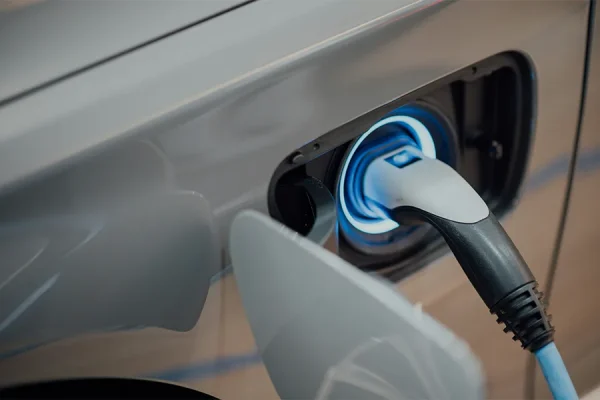EVs: The Future of Driving – Why You Should Consider an Electric Vehicle for Your Next Car
- BUZZAAR
-
Mar 28
- Share post

The automotive industry is experiencing a revolutionary shift, with electric vehicles (EVs) leading the charge toward a more sustainable future. Once considered a niche option for eco-conscious consumers, EVs are now becoming mainstream, offering a compelling mix of environmental benefits, cost savings, and cutting-edge technology. If you’re in the market for a new car, it might be time to consider making the switch to an electric vehicle. Here’s why.
Environmental Benefits
One of the most significant advantages of EVs is their positive impact on the environment. Traditional gasoline and diesel vehicles are major contributors to air pollution and greenhouse gas emissions, which play a significant role in climate change. In contrast, electric vehicles produce zero tailpipe emissions, making them a cleaner and greener choice.
By driving an EV, you are reducing your carbon footprint and helping to decrease the amount of harmful pollutants released into the air. Even when considering the electricity required to charge an EV, studies have shown that EVs still have a lower overall environmental impact compared to their internal combustion engine counterparts, especially if the power comes from renewable energy sources like solar or wind.
As more countries and cities introduce stricter emissions regulations, the adoption of electric vehicles is becoming crucial for achieving climate goals and improving urban air quality. Transitioning to EVs is a powerful step toward a sustainable future for all.

Cost Savings
While the initial price of an electric vehicle can sometimes be higher than that of a conventional car, the long-term savings are significant. The cost of charging an EV is much lower than fueling a gasoline-powered car. For example, electricity is often a fraction of the cost of gasoline, and with the increasing number of home charging stations, you can power your car at a much lower rate than filling up at a gas station.
Additionally, EVs require less maintenance than traditional cars. They have fewer moving parts, meaning there’s less that can go wrong. There’s no need for oil changes, and the brake systems in electric cars tend to last longer due to regenerative braking. Over the years, these savings on fuel and maintenance can add up to a substantial amount, making EVs more economical in the long run.
Governments in many countries are also offering incentives for EV buyers, such as tax credits, rebates, and reduced registration fees. These financial incentives further lower the barrier to entry and make EVs an attractive option for those looking to save money.
Advancements in Technology
Electric vehicles have come a long way in terms of technology. Modern EVs are packed with innovative features, from enhanced safety systems to advanced driver-assistance technologies (ADAS). Many EVs now come with intuitive touchscreens, smartphone integration, and even autonomous driving capabilities.
Battery technology has also seen tremendous improvements. The driving range of electric vehicles has steadily increased, with some of the latest models offering over 300 miles on a single charge. This makes EVs much more practical for everyday use and long road trips, removing one of the main concerns that many consumers had in the past — range anxiety.
Charging infrastructure has expanded rapidly as well. Many cities and highways now have an extensive network of charging stations, making it easier than ever to charge your EV while you’re out and about. Some EVs even support ultra-fast charging, allowing you to recharge up to 80% of the battery in just 30 minutes.
The Future of Driving
The transition to electric vehicles is not just a trend; it’s the future of driving. With advancements in battery technology, charging infrastructure, and regulatory support, the adoption of EVs is expected to grow exponentially in the coming years. Car manufacturers are already investing heavily in electric vehicle development, with many planning to phase out internal combustion engine vehicles altogether in favor of fully electric lineups in the near future.
Moreover, as the global push for sustainability continues, the demand for electric vehicles will only increase. From cities offering EV-friendly incentives to automakers focusing on building more affordable and high-performance EVs, the future of driving is electric, and it’s happening now.
Is an EV Right for You?
If you’re considering purchasing a new car, it’s worth taking a closer look at electric vehicles. Not only will you be contributing to a cleaner planet, but you’ll also benefit from long-term cost savings and enjoy the latest advancements in automotive technology. Whether you’re concerned about reducing your carbon footprint, saving money on fuel and maintenance, or simply enjoying a more efficient and modern driving experience, an electric vehicle could be the perfect choice for your next car.
The future of driving is electric — and it’s time to make the shift.

